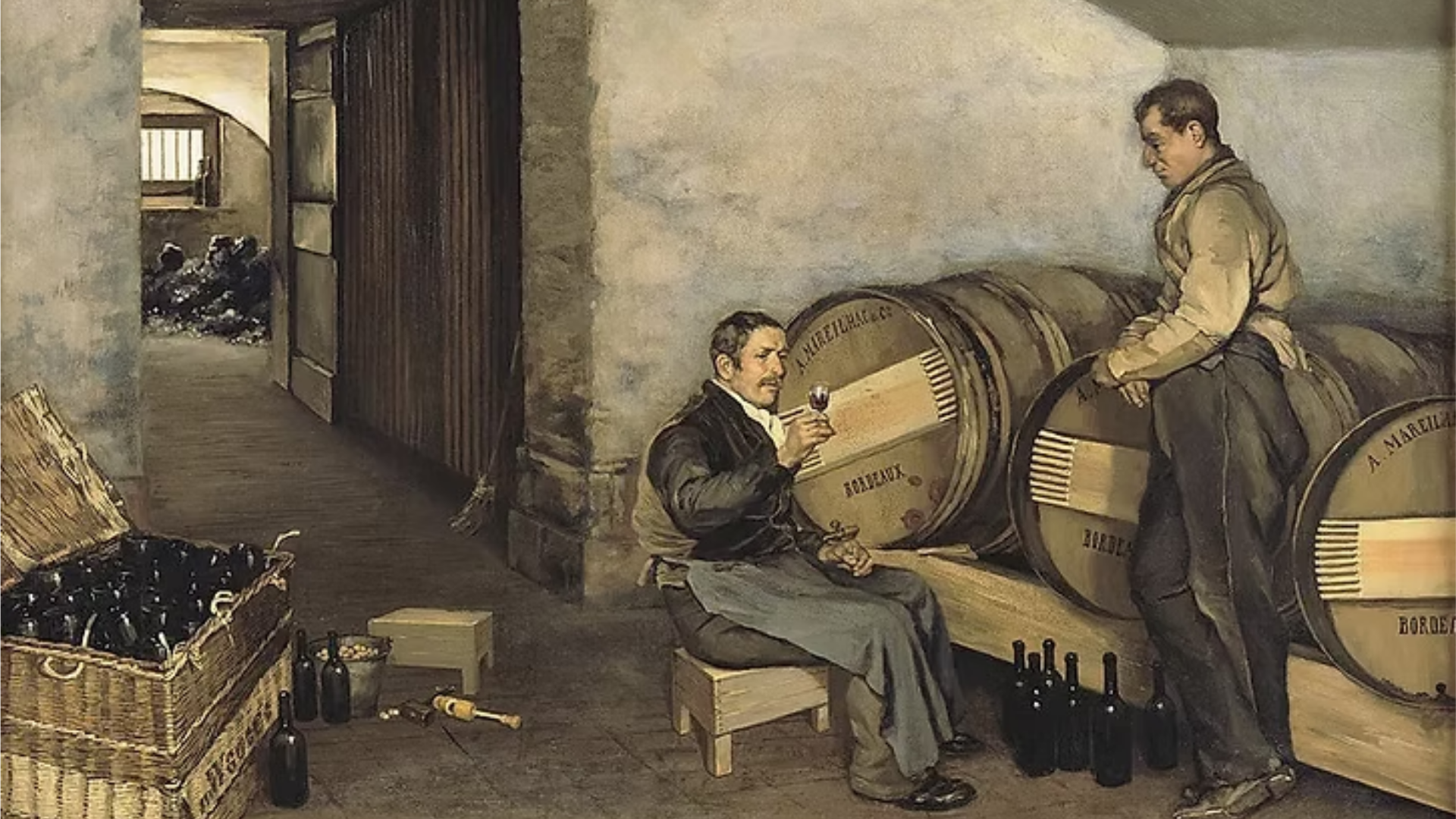The Vital Trio Behind Every Great Wine: Viticulture, Oenology and Sommellerie Explained
Tapisserie “Les vendanges” around 1500-1525, Cluny Museum
A Symbiotic Trinity at the Heart of the Wine World
Wine is a human adventure, a millennia-old legacy, an art form shaped by nature and craftsmanship. But behind every sip that dances on our palate lies a powerful and secret alliance: viticulture, oenology, and sommellerie. Three distinct worlds, three passionate professions, three voices harmonizing to tell one story, the story of wine, from vine to glass.
Join me on this captivating journey to discover these hidden artisans, each a master of their craft, united in a perfect symbiosis.
Viticulture: The Poetry of the Vine 🌱
Picture a winemaker at dawn, wandering between rows of vines. Every leaf, every grape cluster is a fragile treasure in their hands. Viticulture is more than planting vines, it’s a delicate science mixed with near-magical intuition.
The viticulturist is the guardian of the land, the conductor of an age-old cycle. They choose the exact moment to prune, to water, to harvest, a ballet that will shape the destiny of the grapes. Under their care, the vine flourishes, expressing its unique terroir: the subtle marriage of soil, climate, and the spirit of the place.
But today, this craft faces new challenges. With climate’s whims and fragile ecosystems, growers are reinventing their practices: organic farming, biodynamics, soil regeneration… Their fight to preserve nature is also a fight for a sincere, vibrant wine rooted in its terroir.
Oenology: The Magic of Transformation 🔬
Then comes the moment of transformation. In cool cellars, the oenologist takes the stage. Scientist and artist alike, they oversee every step where grape becomes wine. They analyze, measure, taste, adjust. Like an alchemist, they master the chemical reactions, the fermentations, the aromas as they develop.
The oenologist is the invisible sculptor of wine, revealing the fruit’s soul while honoring the viticulturist’s work. Their laboratory is a creative workshop where tradition and innovation intertwine: controlled fermentations, selected yeasts, cutting-edge techniques… Every effort is made to balance stability, quality, and unique expression.
Thanks to them, every bottle tells a story, the story of a vintage, a terroir, a passion, with its own signature.
How to pronounce “Oenologist”:
Pronunciation: /iːˈnɒl.ə.dʒɪst/ or /ˈɛn.ə.lə.dʒɪst/
Said like: ee-NOL-uh-jist or EN-uh-luh-jist (the "o" is often silent, especially in American English.)
Sommellerie: The Art of Connection and Sharing 🍷
Finally, the wine reaches its ultimate destination: the consumer’s glass. This is where the sommelier enters, the true ambassador of wine. More than a server, they are a storyteller, a sensory guide, a bearer of emotion.
With finesse and expertise, they select, advise, pair food and wine, transforming each tasting into a unique moment. Their role goes beyond technical knowledge: they listen, sense desires, awaken curiosity, and convey the richness of terroir through vivid tales.
Today, sommeliers must also meet the demands of diverse, adventurous palates that care about sustainability and authenticity. They create memorable experiences where wine becomes a vessel for pleasure, culture, and connection.
How to pronounce “sommelier”:
Pronunciation: /ˌsʌm.əlˈjeɪ/ or /ˈsʌm.lieɪ/ (French: [sɔ.mə.lje])
Said like: suh-mel-YAY (the "r" is silent and the ending is like "yay.")
A Symphony of Three Voices
Though very different, these three crafts intertwine in a passionate dance. The vine, the grapes, the cellar, the glass: every stage is a piece of a living puzzle.
Without the viticulturist, there is no exceptional fruit.
Without the oenologist, there is no wine as we know it.
Without the sommelier, there is no unforgettable experience.
They feed off one another, blending science and art, nature and culture, skill and emotion.
Wine: A Human and Natural Journey
In the end, viticulture, oenology, and sommellerie are the three pillars of a fascinating human adventure. They embody the meeting of earth, human hands, science, and pleasure.
We don’t just drink wine, we drink a story that begins in the soil, is transformed with passion, and is shared as an experience, alive, vibrant, crossing time and senses.
So next time you raise your glass, remember this trinity, this inseparable trio that shaped that very moment. Because in every sip, there’s so much more than flavor: there’s a symphony.



